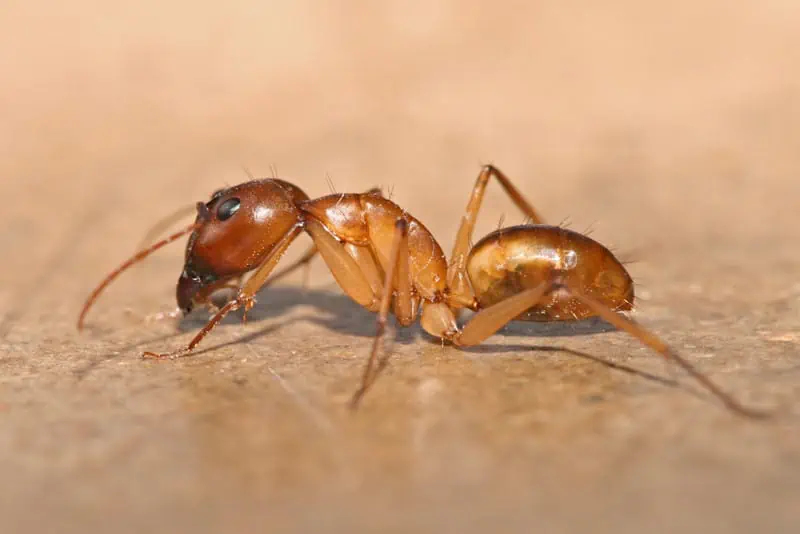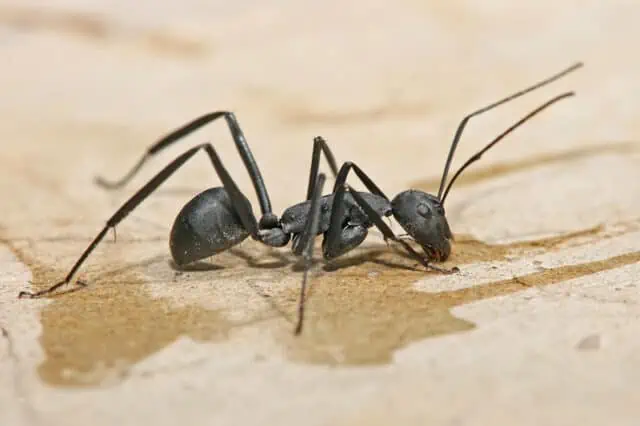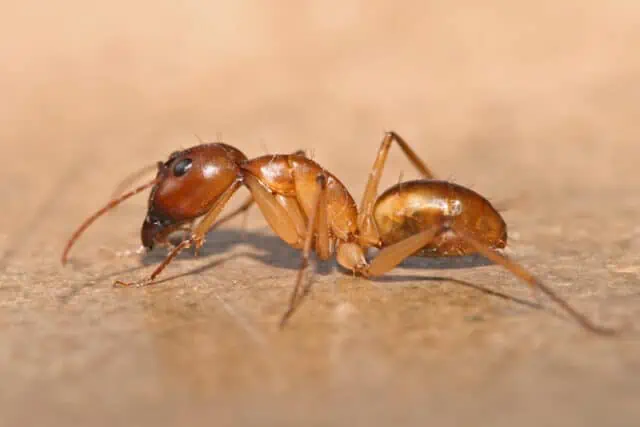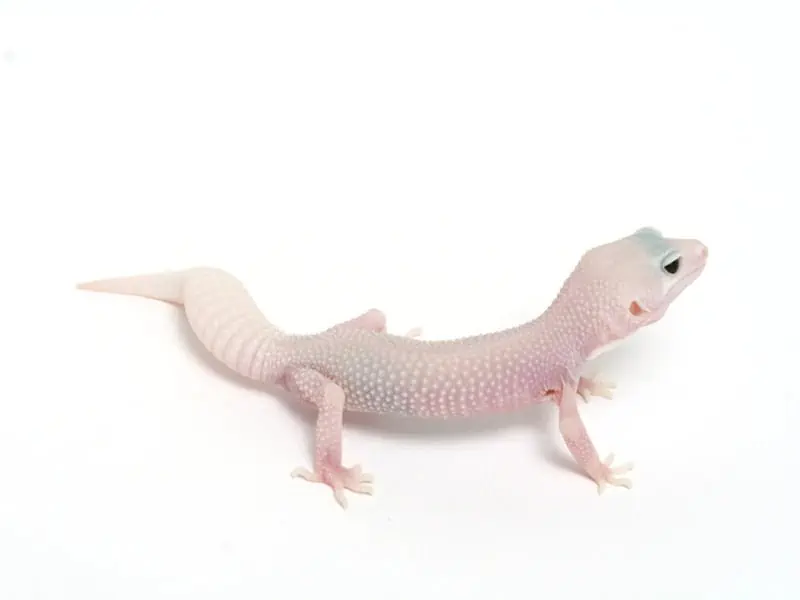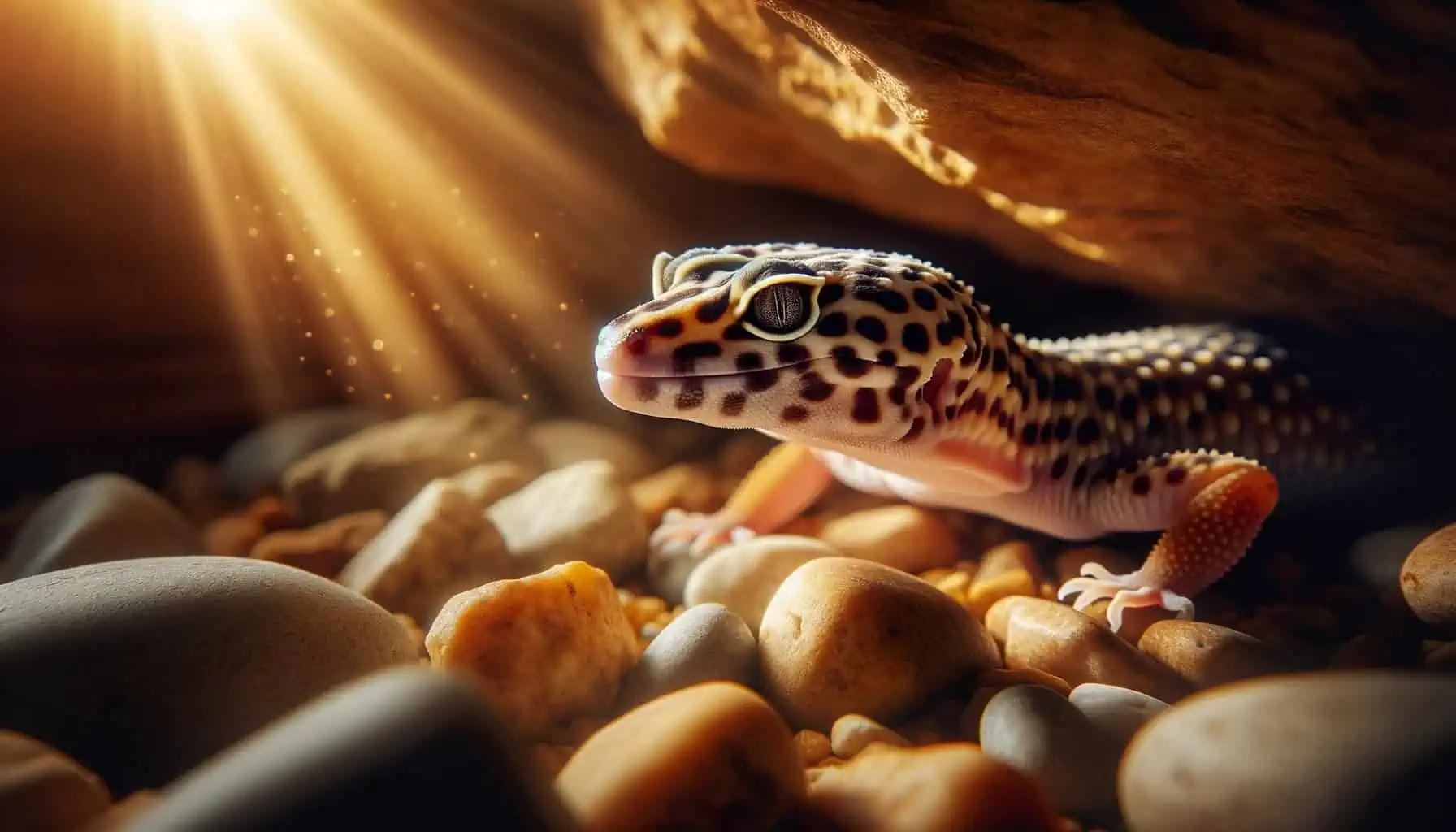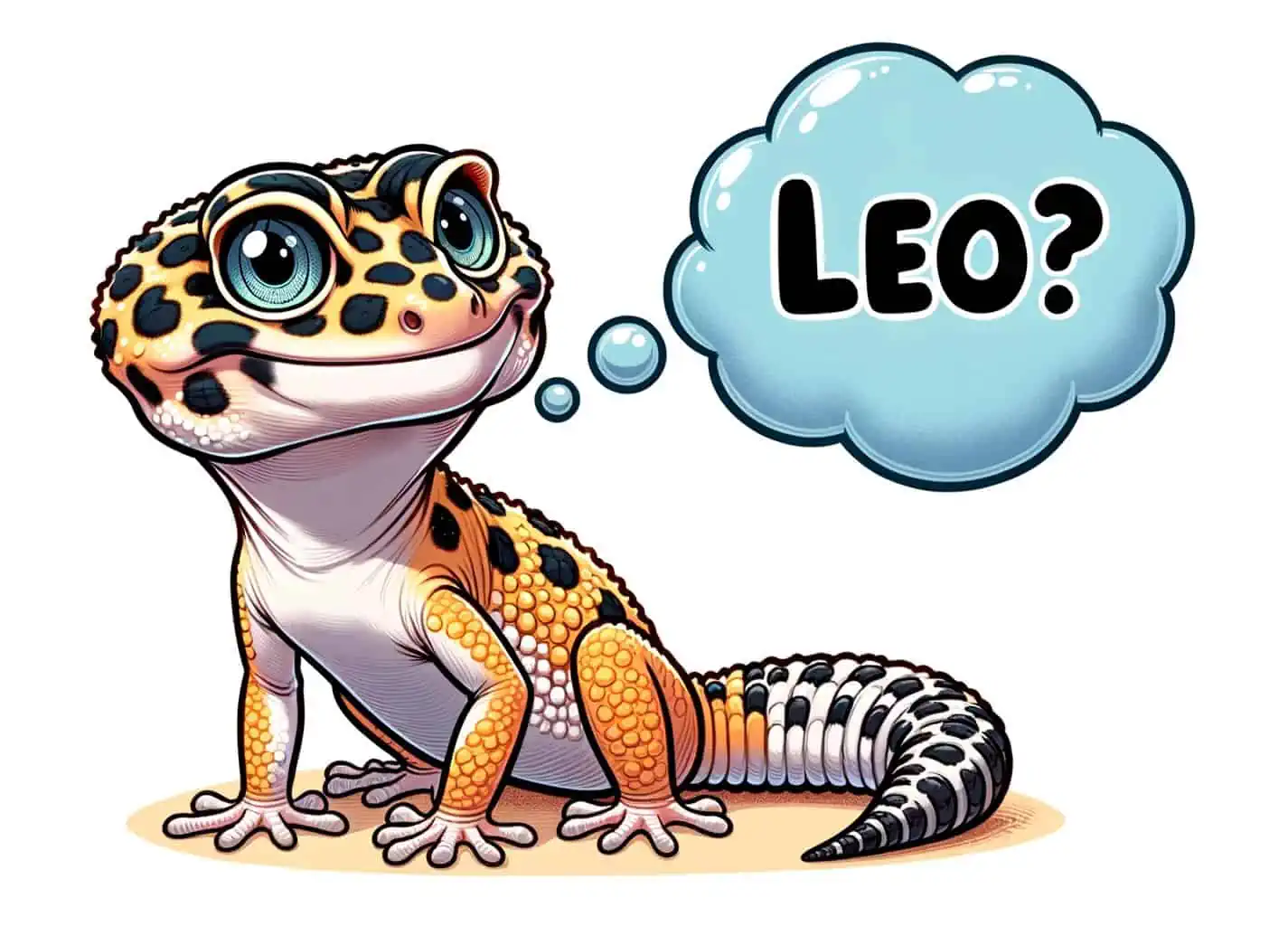Leopard geckos should not primarily consume ants as part of their diet. While ants can offer some nutritional value, certain types might pose health risks to these reptiles, including potential harm from venom and formic acid.
Can Leopard Geckos Eat Ants?
It’s a common query among reptile enthusiasts: can leopard geckos eat ants? The quick answer is, while ants aren’t necessarily toxic to leopard geckos, they’re not the ideal food choice. Their nutritional value and potential health risks vary depending on the type of ant.
Nutritional Value of Ants
Ants, in general, are nutritionally dense insects. Packed with protein, they can offer a significant punch in terms of energy. For many animals, ants serve as a crucial food source, providing essential vitamins and minerals. However, when it comes to leopard geckos, the situation becomes a bit more complex.
Firstly, the nutritional value of ants for leopard geckos can be somewhat of a double-edged sword. While they offer certain nutrients, they’re not the most optimal choice for a staple diet. Leopard geckos have specific dietary needs that are best met through a variety of insects like crickets, mealworms, dubia roaches, and wax worms. These insects tend to be richer in the vital nutrients that leopard geckos require for growth and health maintenance.
That said, ants can provide leopard geckos with some benefits. They are a source of protein, which is crucial for muscle development. Additionally, ants can provide healthy fats, essential for energy and overall vitality. But, one must weigh these benefits against the potential risks, which we’ll delve into in the next section.
Health Risks of Eating Ants
When considering ants as a potential food source for leopard geckos, there are several health risks that need to be taken into account. Ants are more than just a tiny insect; they have defense mechanisms that can pose significant dangers to predators, including our beloved leopard geckos.
A primary concern is the potential harm from ant bites. While leopard geckos are predators, ants, especially the larger species, have powerful jaws that can bite. Some ants are aggressive and will not hesitate to defend themselves, causing discomfort or even injury to the gecko.
Beyond mere bites, many ant species possess venom that can be harmful. This venom can cause allergic reactions, swelling, and in severe cases, even more profound health implications. It’s essential to be aware of the types of ants that have potent venom and keep them away from your gecko’s diet.
Formic acid, a chemical commonly found in ants, is another concern. While small amounts might not be immediately harmful, larger quantities or consistent consumption can lead to digestive issues, discomfort, and other health complications for leopard geckos.
Among the ant species to be wary of are fire ants, known for their painful stings, and certain large species like bullet ants, which have notably powerful venom. Offering such ants to leopard geckos is not recommended, as the potential dangers far outweigh any potential benefits.
Types of Ants that Could be Fed to a Leopard Gecko
Exploring the world of ants, one might be surprised at the sheer variety and specialization among different species. While we’ve discussed the potential risks of feeding ants to leopard geckos, it’s also worth noting that not all ants are created equal. Some might be more suitable as occasional treats for your gecko than others.
Fire Ants

Fire ants, as their name suggests, are notorious for their fiery sting. Originating from South America and now found in various parts of the world, they are known for their aggressive nature and the painful reactions their stings can induce. When considering their suitability as food for leopard geckos, one must tread with caution.
The primary potential risk of feeding fire ants to leopard geckos is the venom they contain. This venom can cause discomfort, allergic reactions, and in some cases, more severe health issues for the gecko. Additionally, due to their aggressive nature, fire ants are more likely to bite and sting when threatened, posing another layer of danger for the feeding gecko.
However, it’s worth noting that not all species of fire ants are equally venomous. Some non-toxic species might be considered for feeding, but even then, their aggressive nature could be a concern. If one were to venture down this path, it’s crucial to ensure that the specific species being offered is indeed non-toxic and poses minimal risk to the gecko.
Weighing the benefits and risks, the general consensus among reptile enthusiasts and experts is to avoid feeding fire ants to leopard geckos. The potential hazards, combined with the plethora of safer, more nutritious insect options available, make them a less than ideal choice for a gecko’s diet.
Carpenter Ants
Carpenter ants, unlike their fiery counterparts, are larger and known for their wood-dwelling behavior. These ants are often found in wooden structures, carving out intricate tunnels and chambers, hence their name. When considering ants as potential food sources for leopard geckos, carpenter ants emerge as a possible option, but as with all ant types, there are considerations to keep in mind.
Among the spectrum of ants that could be fed to leopard geckos, carpenter ants are generally seen as safer than fire ants. They lack the intense venom that fire ants possess, making them less of an immediate threat. However, that doesn’t mean they come without risks. Due to their larger size, there’s a chance of choking, especially if the gecko is smaller or not used to such prey.
While discussing types of ants, it’s essential to mention the distinctions among them. Fire ants, as previously discussed, carry considerable risks due to their venom and aggressive behavior. Carpenter ants, on the other hand, are generally more passive but bring their set of challenges, mainly due to their size. Then there are gecko ants, another category we will delve into shortly, offering their unique characteristics and considerations.
Gecko Ants
The term “gecko ants” might sound a bit misleading at first, suggesting ants tailored specifically for geckos. In reality, there isn’t a specific species named “gecko ants.” However, for the sake of this discussion, let’s consider ants that might be more suitable for leopard geckos in contrast to the previously discussed varieties.
Understanding the various types of ants that could be presented to leopard geckos is paramount. As we’ve explored, fire ants, with their venom and aggressive nature, are on the riskier side of the spectrum. Their painful stings and potential allergic reactions make them a less desirable choice. On the other end, carpenter ants, known for their wood-boring habits, present a more passive choice, yet their larger size might pose a choking hazard to smaller geckos.
Now, when considering ants that fall into our hypothetical “gecko ants” category, we’re looking at species that are neither too aggressive nor too large, and preferably without harmful venom. These would be smaller, more manageable ant species that leopard geckos might naturally encounter in the wild without significant risk.
Safety is of utmost importance when feeding ants to leopard geckos. Even when offering seemingly harmless ants, monitoring is crucial. The gecko’s behavior and health should be closely observed for any adverse reactions or signs of discomfort.
In summary, while there are various ants like fire ants, carpenter ants, and others that might be considered for a leopard gecko’s diet, each comes with its set of considerations. “Gecko ants,” or more suitable ant species, should be small, non-aggressive, and free from harmful venom.
Other Types of Ants and Their Safety for Feeding to Leopard Geckos
Ants are an incredibly diverse group of insects, boasting over 12,000 species with a myriad of behaviors, sizes, and dietary habits. When evaluating their safety for leopard geckos, it becomes evident that, in most cases, they might not be the best choice. While ants are a natural part of many ecosystems and are consumed by a variety of animals, their inclusion in a leopard gecko’s diet requires caution and understanding.
Myrmecophagous geckos are a prime example of adaptation at its finest. These geckos have evolved to primarily feed on ants. Their bodies and behaviors have adapted over time to deal with the challenges ants present as prey, from their hard exoskeletons to their defensive mechanisms. However, it’s essential to distinguish between these specialized geckos and leopard geckos. Leopard geckos have not undergone the same evolutionary adaptations to handle ants, especially not as a primary food source.
For leopard geckos, sticking to a tried-and-true diet is always the safest bet. Nutritious insects like wax worms, crickets, and mealworms provide them with the essential nutrients they need without the potential risks associated with ant consumption. These insects are easy to digest, pose little to no threat, and meet the dietary needs of leopard geckos effectively.

